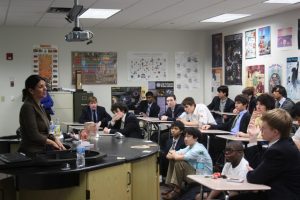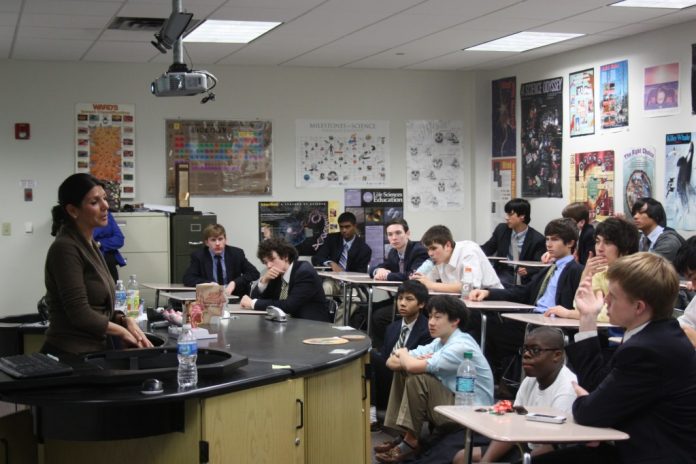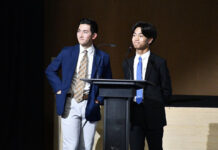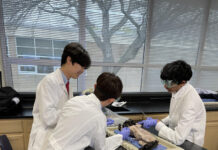The start of the 2012-2013 school year marks the beginning of another great year for the Medical Society. Beginning in October, over fifty juniors will participate in clinical rotations and hopefully gain insight into the medical field. Led by Medical Society directors Jan Jones and Max Von Schlehenried, these juniors will apply for positions and attend clinical rotation events at two hospitals in the Metroplex, Dallas Presbyterian Hospital and Plano Presbyterian Hospital.
In this volunteer program, Jesuit juniors spend a couple of hours one Friday a month at designated hospitals where they report to their respective departments. At orientation, juniors are assigned to departments where they will report each week and assist in any type of work that the departments need. They will have the opportunity to interact with patients and sometimes even to observe surgeries.
 Both hospitals allow students to work in sections that provide different types of medical services, such as Cath Lab, Emergency, ICU, Medical Surgery, NICU, Oncology, Radiology, Telemetry, etc. The available departments change each year. Mrs. Jones explained, “[students] learn how each clinic fits into the hospital operation, the significance of the clinic, and how each clinic specializes in treating the patients.”
Both hospitals allow students to work in sections that provide different types of medical services, such as Cath Lab, Emergency, ICU, Medical Surgery, NICU, Oncology, Radiology, Telemetry, etc. The available departments change each year. Mrs. Jones explained, “[students] learn how each clinic fits into the hospital operation, the significance of the clinic, and how each clinic specializes in treating the patients.”
Because Juniors seem to get the most benefit out of the clinical rotations, Jesuit made the junior class the only class able to participate in these activities. For those who already plan to chase their dreams in the medical field, it was an easy decision to join. Michael Bejarano ’14, for example, explained that he “wanted to participate in the clinical rotations because [he] felt that it offered a great opportunity to have a real-world experience in the career that [he is] looking to pursue.”
For others who do not have a clear goal or dream in the medical field, the clinical rotation program is still very appealing. Nick Chaffin ’14 commented, “By participating in the Medical Society rotations, I hope to gain some insight into what I might want to be, or pursue as a career.” Stephen Yeager ’14 agreed, saying, “I wanted to learn more about how hospitals operate and what it’s like working at one.”
As juniors study and further develop their views of this program, they also put into action the profile of a Jesuit graduate. These students are developing intellectual competence through their studies in the medical field, deepening their commitment to service as they volunteer to assist those who are in need, and demonstrating an openness to growth as they recognize the possibilities of becoming health professionals. Along with the other clubs that exist at Jesuit, the Medical Society aims to provide programs to develop Jesuit students into men for others.
Juniors this year and juniors to come will have the experience of a lifetime by participating in this program. Their questions about the medical field will be answered, their hesitancies about their career choices will hopefully be pacified, and their résumés will be strengthened. Jones added that “students learn responsibility by attending the clinic, (and if they do choose the medical field), they learn about the specialties that they might choose.”






